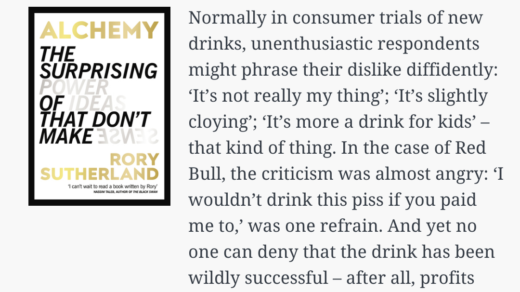With that said, there’s still the problem of at least some people thinking they’re bright when in fact they’re not very bright at all. We’ve all been trapped at a party or a dinner when the least-informed person in the room holds court, never doubting his or her own intelligence and confidently lecturing the rest of us with a cascade of mistakes and misinformation. It’s not your imagination: people spooling off on subjects about which they know very little and with completely unfounded confidence really happens, and science has finally figured it out. This phenomenon is called “the Dunning-Kruger Effect,” named for David Dunning and Justin Kruger, the research psychologists at Cornell University who identified it in a landmark 1999 study. The Dunning-Kruger Effect, in sum, means that the dumber you are, the more confident you are that you’re not actually dumb. Dunning and Kruger more gently label such people as “unskilled” or “incompetent.” But that doesn’t change their central finding: “Not only do they reach erroneous conclusions and make unfortunate choices, but their incompetence robs them of the ability to realize it.” In fairness to the “unskilled,” we all tend to overestimate ourselves. Ask people where they think they rate on any number of talents, and you will encounter the “above average effect,” in which everyone thinks they’re … well, above average. This, as Dunning and Kruger dryly note, is “a result that defies the logic of descriptive statistics.” It is nonetheless so recognizable a human failing that the humorist Garrison Keillor famously created an entire town dedicated to this principle, the mythical Lake Woebegone, where “all the children are above average” in his radio show A Prairie Home Companion.
The Dunning-Kruger Effect. Probably something that pretty much all of us observe on a day-to-day basis whether at work, online or with our social circles. With complex topics, it is likely that the more you know, the more reserved you’ll be in making conclusions as you began to weigh a higher variance of factors in your head when making a judgement.
It is akin to starting a project in new domain for your boss and you overconfidently guaranteeing that you’ll be able to deliver it in a week. Come to day 5, and you’ve realised that you’re still only 20% through and just spent a good 2 hours fixing that irritating formatting bug on your document.
It is indeed good to beware those who shout the loudest and simplify problems with a 3-step solution. It seems like this describes almost all politicians. But just a word of fairness, it is their job to be loud and to simplify problems for the comprehension of us average folk.



